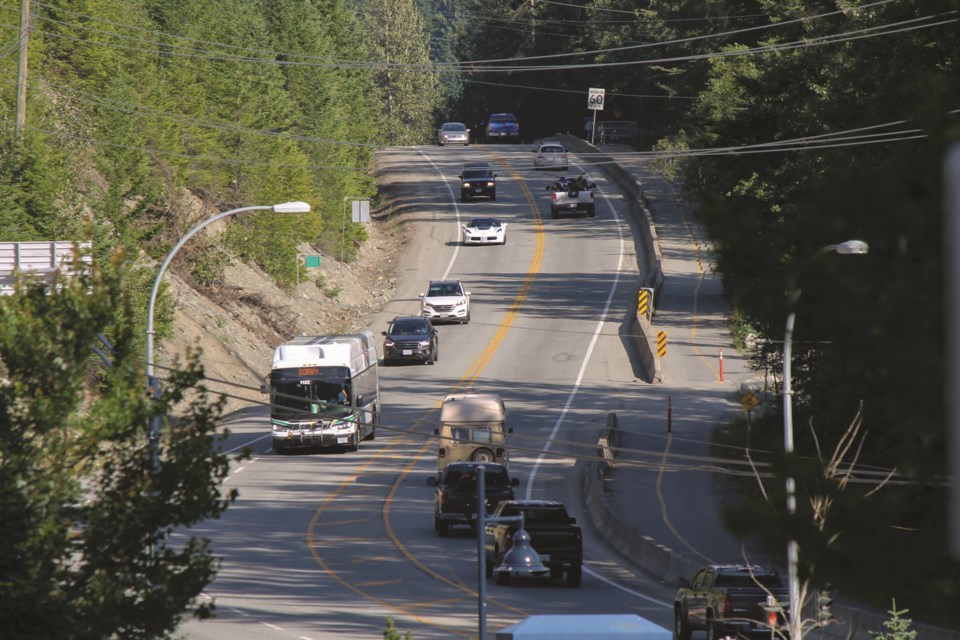When Whistler officials meet with their provincial counterparts at next week’s Union of BC Municipalities (UBCM) Convention, they’ll have no shortage of topics to discuss.
Priorities for Whistler include housing, wildfire mitigation and the continuation of Resort Municipality Initiative (RMI) funding, along with the long-sought-after implementation of regional transit in the Sea to Sky corridor.
At this year’s UBCM, the Resort Municipality of Whistler (RMOW) will join all local governments in the Sea to Sky as well as the Squamish-Lillooet Regional District in a joint meeting with provincial ministers George Heyman (minister of environment and climate change strategy), Rob Fleming (minister of transportation and infrastructure) and Bowinn Ma (minister of state for infrastructure) to once again make the case for regional transit.
“I’m hopeful. I feel we’ve made a really good, strong case for why regional transit is so important to the Sea to Sky—you don’t have to look further than the highway on any morning or afternoon to see that,” said Mayor Jack Crompton.
“Our hope is that they’ll join us in the effort to address what is a serious challenge for us from a transportation perspective and a climate perspective.”
The RMOW will also meet with five other provincial ministers during what is sure to be a busy week: Melanie Mark (tourism, arts, culture and sport); David Eby (attorney general and minister responsible for housing); Josie Osborne (municipal affairs); Katrine Conroy (forests, lands, natural resource operations and rural development); and Selina Robinson (finance).
“We’ll be asking Minister Eby to commit more resources to employee housing in and around British Columbia, and in Whistler specifically,” Crompton said, adding that affordability is extremely challenging for all communities in the province.
“And Whistler certainly sees that. Our goal is to see Minister Eby come to the table with additional resources so that we can help more people in our community.”
Another point of discussion for Whistler officials is the continuation of the RMI program, which provides B.C.’s tourism communities with much-needed funds to invest in tourism offerings.
In its 2019 budget, the provincial government committed to providing $39 million over three years to the program.
In recent years, the RMOW has received about $7.5 million in RMI funding annually, and the program has been “foundational” to the resort’s ability to deliver quality tourism experiences, Crompton said.
“Having the ability to strategically invest in these programs is critical to support a resort community financial model. The pandemic made that a lot more challenging, and our goal is to ensure long-term, multi-year financing for those important programs,” he said.
“We’ll request that the next RMI funding cycle be multi-year so we can build momentum that assists with multi-year pandemic recovery. Tourism, to be sustainable, needs to serve the people that live in those communities … Our hope is that this funding takes some of the pressure off the residents of our community.”
On the topic of wildfire mitigation, the RMOW will emphasize the important role provincial funding has in the delivery of local FireSmart programs, and the “large impact” they have on reducing Whistler’s wildfire risk, Crompton said.
“I’m looking forward to speaking to all the ministers about B.C.’s tourism restart and recovery,” the mayor added.
“It’s been a really long and difficult couple of years for this community and the people who live here. There’s a lot of work to do to rebuild, and the businesses and people who live here will require all the support every order of government can provide.”
With that in mind, the provincial government is dealing with the same impacts of the pandemic.
“Every ministry in the provincial government has been touched by COVID-19, and their challenges on delivery have been made more difficult,” Crompton said.
“Our hope and expectation is they’ll really rise to this and we can get past COVID and be better on the other side.”





